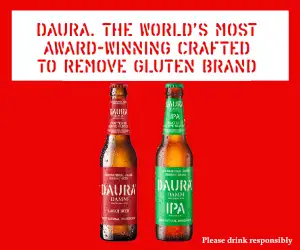-
Welcome to Celiac.com!
You have found your celiac tribe! Join us and ask questions in our forum, share your story, and connect with others.
-
Get Celiac.com Updates:Support Our Content
-
Get Celiac.com Updates:Support Celiac.com:
-
Recent Activity
-
- DebJ14 replied to NCalvo822's topic in Post Diagnosis, Recovery & Treatment of Celiac Disease14
Newly Diagnosed
I was tested for nutrient deficiencies and Thiamine was not my problem. The doctor uses the Spectracell Test for Micronutrient Deficiencies. I was deficient in Carnitine, Magnesium, multiple antioxidants, D, Selenium, B12, B6 and a long list, just not Thiamine. -
- Joel K commented on Scott Adams's article in Gluten-Free Travel1
Cruising Gluten-Free: Why Princess Cruises Stands Out for People with Celiac Disease and Gluten Sensitivity
Umm...meh. Under the "Tips for a Safe...", #6 should be #1. If a cruiseline bombs out on the research, 2-6 become irrelevant. That notwithstanding, how is Princess any different from any other cruise line if you have to follow stated tips 1-5 if they manage to pass #6? You'd do the same everywhere else. I should say, I would. For the ...- allergy-friendly
- celiac disease
- (and 8 more)
-
- trents commented on Scott Adams's article in Diagnosis, Testing & Treatment3
New Blood-based T Cell Celiac Disease Diagnostic Test Eliminates Prolonged Gluten Challenge (+Video)
Yes, but knowing you have "a gluten problem" does not distinguish between gluten sensitivity and celiac disease, an important distinction when it comes to long range health implications and how strict you need to be in avoiding gluten. And in reality, many people find they cannot stick to the gluten free diet until they have a formal diagnosis. Without that...- celiac disease
- celiac test
- (and 8 more)
-
- miguel54b commented on Scott Adams's article in Diagnosis, Testing & Treatment3
New Blood-based T Cell Celiac Disease Diagnostic Test Eliminates Prolonged Gluten Challenge (+Video)
I did not need a test to tell me that I have a gluten problem; once I stopped eating gluten and all my medical problems went away, that was enough for me. It is great that they developed this test since doctors would not take your words for it, and I was afraid of doing a gluten challenge test since the desire to commit suicide was one of my symptoms.- celiac disease
- celiac test
- (and 8 more)
-
- trents commented on Scott Adams's article in Diagnosis, Testing & Treatment3
New Blood-based T Cell Celiac Disease Diagnostic Test Eliminates Prolonged Gluten Challenge (+Video)
This is truly a breakthrough in the diagnostic realm! Hopefully, this technology will become widely available sooner than later and save a lot of people a lot of misery in the process of trying to get a diagnosis.- celiac disease
- celiac test
- (and 8 more)
-











Recommended Posts
Create an account or sign in to comment
You need to be a member in order to leave a comment
Create an account
Sign up for a new account in our community. It's easy!
Register a new accountSign in
Already have an account? Sign in here.
Sign In Now